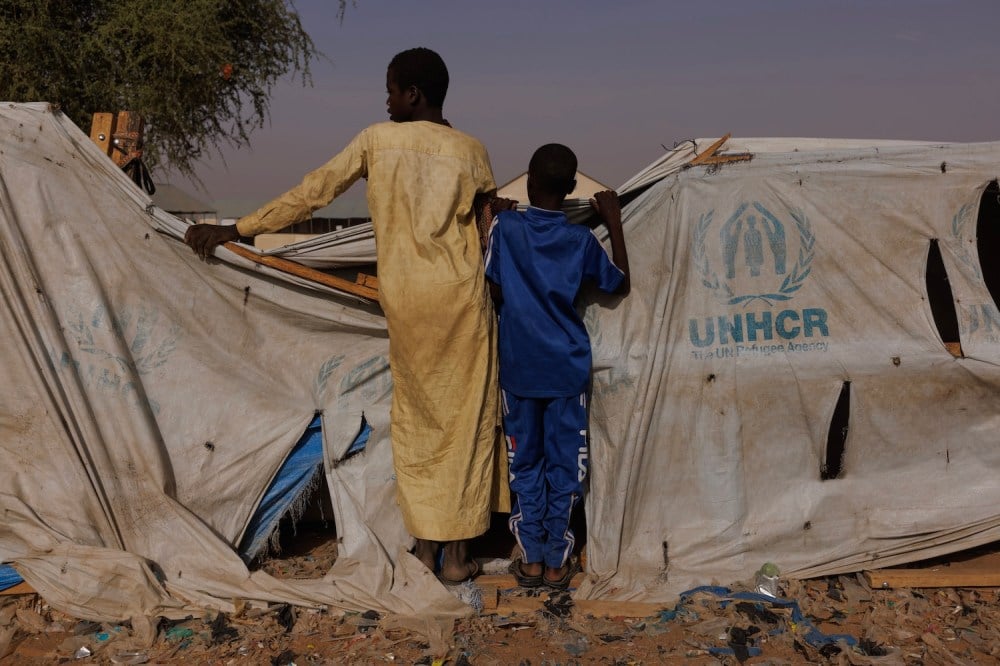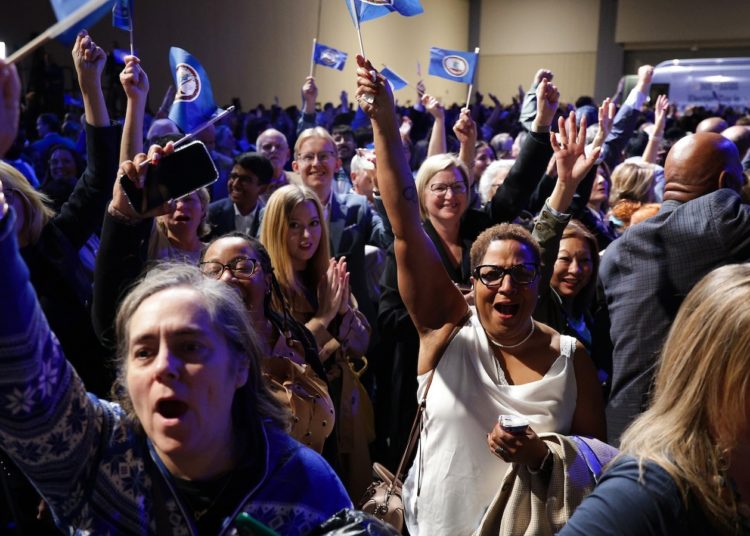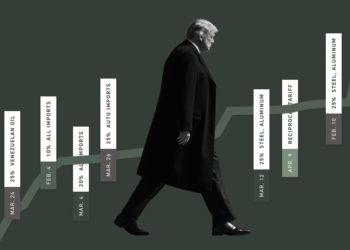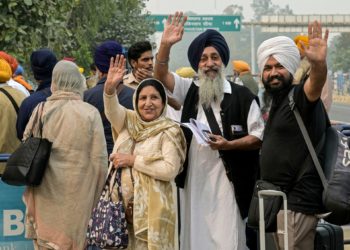Welcome to Foreign Policy’s Africa Brief.
The highlights this week: Sudanese refugees face worsening hunger amid unprecedented aid cuts, analysts remain skeptical of the new peace deal between the Democratic Republic of the Congo and Rwanda, and tensions mount within South Africa’s shaky coalition government.
Aid Cuts Push Sudanese Refugees Toward Hunger
The United Nations World Food Program (WFP) warned on Monday that Sudanese refugees who have fled to neighboring African countries—including the Central African Republic, Egypt, and Ethiopia—face worsening hunger following cuts to global aid.
“This is a full-blown regional crisis that’s playing out in countries that already have extreme levels of food insecurity and high levels of conflict,” said Shaun Hughes, WFP’s emergency coordinator for the Sudan regional crisis.
More than 4 million people have fled Sudan since civil war broke out between the Sudanese army and the paramilitary Rapid Support Forces (RSF) in April 2023. Although this is the world’s largest displacement crisis, it has largely escaped global attention and been overshadowed by conflicts in the Middle East and Ukraine.
Meanwhile, humanitarian agencies are facing unprecedented cuts in global aid, especially as governments boost defense spending. Under President Donald Trump, the United States, the world’s largest foreign aid donor, has slashed aid by an estimated 56 percent compared with 2023; Germany and the United Kingdom are cutting aid by around 27 percent and 39 percent, respectively.
These cuts constitute a severe threat to U.N. humanitarian work. Last week, the WFP said it may need to suspend food assistance to more than 235,000 refugees in Egypt by August if it cannot meet a critical funding shortfall of $23 million. As of February, the U.N. Refugee Agency had received only 14 percent of the more than $409 million it needed to support the 1.3 million forcibly displaced people in Chad, most of whom are Sudanese.
Within Sudan, famine has been confirmed across at least 10 areas, with 17 other locations at risk. Around 26 million people—more than half of the country’s population—face extreme levels of hunger. But as of March, the U.N. Sudan Humanitarian Needs and Response Plan had received just $252.6 million of the $4.2 billion required to support humanitarian efforts in the country.
Meanwhile, the conflict has entered a new phase in recent months as both sides ramp up their use of drones, which analysts believe are coming from China, Turkey, and the United Arab Emirates. In May, Amnesty International identified the use of sophisticated Chinese-made drones in an RSF attack that killed 13 people, noting that the UAE “almost certainly” provided the drones.
In March, Sudan filed a case against the UAE before the International Court of Justice (ICJ), accusing the country of “complicity in genocide” of non-Arab communities by supporting the RSF. Two months later, the ICJ dismissed the case, saying the court lacked the authority to hear it because the UAE had opted out of an article of the Genocide Convention that allows nations to sue one another for alleged genocide at the ICJ. The UAE has repeatedly denied backing the RSF.
Jean-Pierre Lacroix, the U.N. undersecretary-general for peace operations, warned last Thursday that the conflict was spilling over Sudan’s southwestern border into the Central African Republic. He told the U.N. Security Council that “armed Sudanese elements” were responsible for the killing of a Zambian U.N. peacekeeper in June near the border.
Sudan’s civil war has already complicated tensions in neighboring South Sudan’s Upper Nile region, and as it continues to escalate, analysts fear it could spread farther across the region.
The Week Ahead
Wednesday, July 2, to Wednesday, July 9: Indian Prime Minister Narendra Modi is set to visit Ghana and Namibia as part of a five-nation tour focused on critical minerals.
Sunday, July 6: Brazil hosts a two-day BRICS summit in Rio de Janeiro. Egypt, Ethiopia, and South Africa will attend as members, while Nigeria is slated to attend as a partner nation.
Eight OPEC+ countries, including Algeria, convene for a virtual meeting.
Monday, July 7: Deadline for charges to be brought against detained Rwandan opposition figure Victoire Ingabire Umuhoza.
What We’re Watching
Can Congo’s peace deal hold? On Friday, the Democratic Republic of the Congo and Rwanda signed a peace deal brokered by the United States, which seeks to access critical minerals in Congo, where Chinese companies effectively hold a monopoly on the mining sector. Although Rwanda denies involvement in Congo’s conflict, U.N. experts say the country has as many as 4,000 troops fighting alongside M23 rebels who have captured parts of eastern Congo this year.
According to the Financial Times, the deal could see coltan mined from the Rubaya site in Congo’s North Kivu province transferred legally to Rwanda. There, coltan would be processed for export at a Kigali smelter built by a consortium comprising Rwandan investor Ngali Holdings; Swiss commodities group Mercuria; and America First Global, an investment firm chaired by Gentry Beach, a Texan hedge fund manager who was a major fundraiser for Trump’s 2016 campaign.
Yet many analysts and Congolese are skeptical that the deal will bring lasting peace. Fighting in eastern Congo has endured for more than three decades and displaced at least 7 million people. Critics question how the deal will be enforced, especially since M23 operates a parallel proxy government across the territories it has captured since January, where it collects taxes from mining operations—including at Rubaya.=
M23 rebels previously suggested that the agreement would not be binding for them because they had not been included in negotiations. Former Congolese President Joseph Kabila, meanwhile, has described the deal as “nothing more than a trade agreement.”
South Africa’s shaky coalition. Tensions are mounting within South Africa’s already fragile 10-party Government of National Unity after the Democratic Alliance (DA), the second-largest party in the coalition, withdrew on Sunday from a national dialogue that President Cyril Ramaphosa had planned for August.
The announcement followed Ramaphosa’s firing of DA member and Deputy Trade Minister Andrew Whitfield over an unauthorized trip to the United States this year. Since the coalition was formed last year, the ruling African National Congress (ANC) and DA have clashed on a number of issues, including tax policy, land reforms, and a language education bill.
Although the coalition government will remain intact for now, the DA will likely continue to oppose budget votes for government departments headed by ANC ministers, posing a challenge to Ramaphosa’s presidency at a time of intense scrutiny from the Trump administration. These tensions could trigger the DA to bring about a motion of no confidence against Ramaphosa.
Mozambique’s child soldiers. Al-Shabab has kidnapped at least 120 children in recent days in northern Mozambique’s Cabo Delgado province. The terrorist group is forcing many of the children to become fighters or child brides, according to Human Rights Watch.
An Islamist insurgency began in Cabo Delgado in 2017, driven in part by social and economic exclusion, youth disaffection, and the extraction of rich gas deposits by international companies. The violence in the province has displaced more than 1.4 million people.
Angolan investment. Last week, Angola became the latest sovereign shareholder in the Africa Finance Corp. The country has committed around $185 million in equity investments to the Lagos-based infrastructure financier, which is a lead developer in the Lobito Corridor, a U.S.-backed railway project to help transport critical minerals.
In 2024, the Africa Finance Corp. surpassed $1 billion in total revenue for the year for the first time in its history, with new investments from Turk Eximbank and the Arab Bank for Economic Development in Africa, among other institutions.
This Week in Culture
Nigeria’s Senate Committee on Reparations and Repatriations, which was formed last year, met with other African policymakers on Monday to discuss how to move forward on seeking the restitution of stolen cultural artifacts as well as redress for economic exploitation.
In June, the Netherlands returned to Nigeria 119 Benin Bronzes that were looted by British soldiers in 1897. The Benin Bronzes are a collection of 5,000 or so artifacts, largely made in the 14th to 16th centuries, that adorned the royal palace of the Kingdom of Benin in what is now Nigeria’s Edo state.
Nigeria intends to house the returned artwork in two museums planned for construction in Benin City, the Museum of West African Art and Benin Royal Museum.
In recent years, New York’s Metropolitan Museum of Art and the Netherlands have also returned some artifacts of Yoruba origin from the Ife Empire in what is now southwestern Nigeria. Yoruba art is now being displayed at the John Randle Centre for Yoruba Culture and History, a museum that opened in Lagos last October.
FP’s Most Read This Week
- Iran Is on Course for a Bomb After U.S. Strikes Fail to Destroy Facilities by Jeffrey Lewis
- Trump’s Iran Deal Withdrawal Comes Back to Haunt Him by Keith Johnson
- Why Russia Is Sitting Out This Round of the Israel-Iran Conflict by Dimitar Bechev
What We’re Reading
Kenya’s champion of Indigenous languages. Kenyan literary giant Ngũgĩ wa Thiong’o died in May at the age of 87. His last book, Decolonizing Language and Other Revolutionary Ideas, was published a few weeks before his death.
In the Republic, author Sarah Ladipo Manyika recounts her friendship with Ngũgĩ. “Ngũgĩ’s role as a language warrior and publishing revolutionary was inextricably tied to the importance of storytelling,” she writes. “He was a master storyteller, especially drawn to oral storytelling.”
Nigeria’s last queer scene? The rising popularity of underground rave clubs in Lagos is eroding a historically safe space for LGBTQ people in Nigeria, Rabi Madaki reports in the Continent.
“What began as intimate, protective spaces for queer Nigerians are now a visible mainstream scene, with sponsorships and celebrity appearances at big venues. … What was once a queer refuge now requires performance, calculation, and self-policing,” she writes.
The post What Foreign Aid Cuts Mean for the World’s Worst Displacement Crisis appeared first on Foreign Policy.




